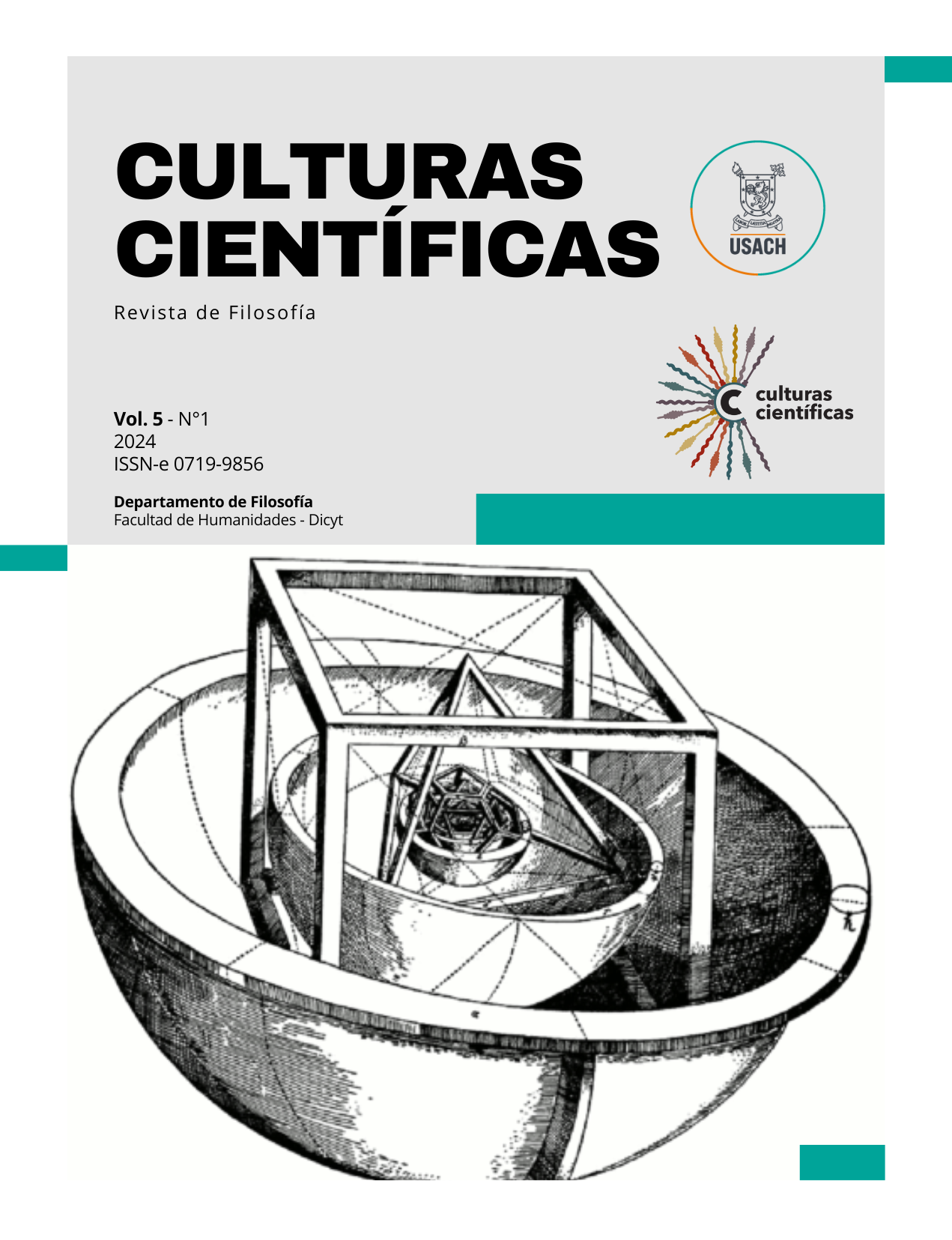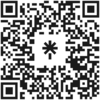Bridging the Gap: Holton's Themata and their Nexus with Established Philosophical Frameworks in Scientific Research
DOI:
https://doi.org/10.35588/cc.v5i1.6702Keywords:
Imagination, scientific research, Kant's Categories, Kuhn's paradigms, Lakatos' research programmesAbstract
This article examines the rich texture of Holton's themata. Holton argues that within established rational norms there is room for subjective elements, including scientific imagination. He posits that these peer influences, known as themeta, not only fail to impede scientific progress, but also serve as a conduit for new scientific discoveries. The paper aims to gain a comprehensive understanding of their impact on academics and scientific research, by investigating their potential convergence or divergence with other cognitive frameworks in the philosophy of science, such as Kant's categories, Kuhn's paradigms and Lakatos' research programmes. By comparing themeta to these well-established frameworks commonly used to unravel scientific knowledge and research, this study aims to clear up potential confusion and deepen our understanding of the often overlooked or underestimated influence exerted by themeta in science. In a specific sense, this investigation highlights the vital role played by imagination and pre-existing thought structures in the formulation and advancement of scientific theories. Through this analysis, a comprehensive understanding of the essence of themata is provided, highlighting the importance of recognising and understanding themata as essential components of scientific research at certain point. As a result, this investigation reinforces the validity of the assertion, an ongoing subject of debate, that empirical data, mathematical expertise or logical reasoning alone cannot supplant these integral constituents.
Downloads
References
Agassi, J. (1973). Continuity and Discontinuity in the History of Science. Journal of the History of Ideas, 34(4), 609‑626. https://doi.org/10.2307/2708892
Anouk Barberousse, Denis Bonnay, and M. C. (Éd.). (2018). The Philosophy of Science: A Companion. Oxford University Press.
Anouk Barberousse; Max Kistler; Pascal Ludwig. (2000). La philosophie des sciences au XXe Siècle. Flammarion.
Aristotle. (s. d.). Posterior Analytics.
Barbosa, J. (2020). Themata e Paradigmas: dois conceitos epistemológicos distintos, mas com relações [Themata And Paradigms: Two Epistemological Different Concepts But With Relations]. Aufklärung: journal of philosophy, 7(3), 33‑42. https://doi.org/10.18012/arf.v7i3.52344
Barbosa, J. (2022). A thematic approach to selection effects and biases in cosmology: Fred Hoyle and the rejection of the big bang idea, despite the experimental observations. Belgrade Philosophical Annual, 35. https://doi.org/10.5937/bpa2235007b
Boirel, R. (1972). L’invention (4e édition). PUF.
De Mey, T. (2006). Imagination’s Grip on Science. Metaphilosophy, 37(2), 222‑239. https://doi.org/10.1111/j.1467-9973.2006.00432.x
Fabrizio Macagno, D. W. (2010). What we hide in words: Emotive words and persuasive definitions. Journal of Pragmatics, 42, 1997–2013. https://doi.org/10.1016/j.pragma.2009.12.003
Gava, G. (2023). Kant’s Critique of Pure Reason and the Method of Metaphysics. Cambridge University Press.
Gerring, J. (1999). What makes a concept good? A criterial framework for understanding concept formation in the social sciences. Polity, 31(3), 357‑393.
Godfrey-Smith, P. (2021). Theory and Reality: An Introduction to the Philosophy of Science (second). The University of Chicago Press.
Gracia, J. J. E. (2000). The Language of Categories: From Aristotle to Ryle, via Suárez and Kant. In Rencontres de Philosophie Médiévale (p. 337‑355). https://doi.org/10.1484/M.RPM-EB.3.1044
György Kampis, Ladislav Kvasz, M. S. (2002). Appraising Lakatos: Mathematics, Methodology, and the Man (M. S. G. K. Ladislav Kvasz (Éd.)). Springer.
Hacking, I. (2001). Aristotelian Categories and Cognitive Domains. Synthese, 126(3), 473‑515. http://www.jstor.org/stable/20117121
Harvey, L. (2022). Social Research Glossary, Quality Research International. http://www.qualityresearchinternational.com/socialresearch/
Holton, G. (1956). A Heuristic Model for the Growth Process of Modern Physical Science. Synthese, 10(1), 190‑202. https://philpapers.org/rec/HOLAHM
Holton, G. (1973). Thematic Origins of Scientific Thought: Kepler to Einstein. Harvard University Press.
Holton, G. (1993). Science and Anti-Science (2e éd.). Harvard University Press.
Holton, G. (1996). The Role of Themata in Science. Foundations of Physics, 2, 1‑7. https://dash.harvard.edu/bitstream/handle/1/42639307/The Role of Themata in Science.pdf?sequence=1&isAllowed=y
Holton, G. (1998a). The Advancement of Science, and its Burdens : With a New Introduction. Cambridge, MA: Harvard University Press. http://nrs.harvard.edu/urn-3:HUL.InstRepos:23975381
Holton, G. (1998b). The scientific imagination (MA: Harvard University (Éd.)).
Holton, G. (2000). Einstein, History, and other Passions : The Rebellion Against Science at the end of the Twentieth Century. Cambridge, MA: Harvard University Press. http://nrs.harvard.edu/urn-3:HUL.InstRepos:23975375
Holton, G. (2005). Perspectives on the Thematic Analyses of Scientific Thought. Victory and Vexation in Science: Einstein, Bohr, Heisenberg, and Others, 135‑151. http://nrs.harvard.edu/urn-3:HUL.InstRepos:37894289
Holton, G., & Yehuda, E. (2014). Albert Einstein, Historical and Cultural Perspectives: The Centennial Symposium in Jerusalem. Princeton University Press.
Holton Gerald. (1988). Thematic origins of scientific thought: Kepler to Einstein (Revised ed). MA: Harvard University Press. http://nrs.harvard.edu/urn-3:HUL.InstRepos:23975383
Hourya, B.-S. (1999). Introduction /Introduction. Revue d’histoire des sciences, 52(3‑4), 339‑341. https://doi.org/https://doi.org/10.3406/rhs.1999.1359
Ibarretxe-Antuñano, I., & Mendívil-Giró, and J.-L. (2014). To be or not to be a word : new reflections on the definition of word (I. Ibarretxe-Antuñano & J.-L. Mendívil-Giró (Éds.)). Cambridge Scholars Press.
Invernizzi, M. (2017). The Role of Developmental Word Knowledge in Achieving Fluency. Michigan Reading Journal, 49(2, Article 10), 1‑6. https://scholarworks.gvsu.edu/mrj/vol49/iss2/10
Jacques, F. (1985). L’espace logique de l’interlocution - Dialogiques II. PUF.
Jacques, F. (1989). « Contexte de justification et contexte de découverte : Une réévaluation ». In Karl Popper et la science aujourd’hui, Colloque de Cerisy. Aubier.
Jared, W. (2022). The A Priori Without Magic (S. Hetherington (Éd.)). Cambridge University Press.
Jaspers, K. (1960). Way To Wisdom: An Introduction to Philosophy (R. Manheim (Trad.)). Yale University Press.
Jorritsma, R. N. (2022). How well does evolution explain endogenous retroviruses?—A Lakatosian assessment. Viruses, 14(14), 1‑15. https://doi.org/10.3390/v14010014
Kahn, C. H. (1978). Questions and Categories: Aristotle’s Doctrine of Categories in the Light of Modern Research. Springer.
Kant, I. (1998). Critique of Pure Reason (Paul Guyer and Allen W Wood (Éd. et Trad.)). Cambridge University Press.
Kant, I. (2006). Anthropology from a Pragmatic Point of View (Robert B. Louden with an introduction by Manfred Kuehn (Éd.)). Cambridge University Press.
Kind, A. (2022). Imagination and Creative Thinking. In K. Frankish (Éd.), Amy Kind. Cambridge University Press.
Kipfe, B. A. (2021). Encyclopedic Dictionary of Archaeology (2nd éd.). Springer Nature Switzerland AG. https://doi.org/10.1007/978-3-030-58292-0
Kremer-Marietti, A. (1992). Thêmata. In Encyclopédie philosophique (M-Z) : Les notions philosophiques, Tome 2, Paris, PUF, (p. 2580). PUF.
Kuhn, T. S. (2012). The Structure of Scientific Revolutions (4. ed.). The University of Chicago Press.
Ladrière, J. (1981). Courants d’antiscience, causes et significations. (Actes de Colloque) Secrétariat International des Questions Scientifiques, Science et Antiscience, coll. Recherches et Débats – nouvelle série 1.
Lakatos, I. (1989). The Methodology of Scientific Research Programmes: Philosophical Papers. Volume 1 (J. W. and G. Currie (Éd.)). Cambridge University Press.
Laudan, L. (1977). Progress and its problems : towards a scientifique theory of growth. University of California Press.
Léna, S. (2009). Introduction à l’épistémologie. Nouvelle édition revue et augmentée [d’un chapitre]. Ellipses.
Malolo-Dissaké, E. (2012). Grammaires de l’objectivité scientifique. Au coeur de l’Epistémologie de Karl Popper (Dianoia (Éd.)).
Matalon, B. (1996). La construction de la science. De l’épistemologie à la sociologie de la connaissance scientifique. Delachaux et Niestlé.
Merton, R. K. (1975). Thematic Analysis in Science: Notes on Holton’s Concept. Science,New Series, 188(4186), 335‑338. http://www.jstor.org/stable/1739319
Morin, E. (1990a). Science avec conscience. Nouv. édit. Editions du Seuil.
Morin, E. (1990b). Science avec conscience (Nouv. édit). Editions du Seuil.
Murphy, A. (2022). Imagination in science. https://doi.org/10.1111/phc3.12836
Ogundele, Emmanuel Adetokunbo; Ogunyomi, A. I. (2020). A Critical Assessment of Thomas Kuhn’s Understanding of Scientific Progress. Caribbean Journal of Philosophy, 12(2), 62‑77.
Philippe, M.-D. (1978). Lettre à un ami. Itinéraire philosophique. Téqui.
Popper, K. (2005a). The logic of scientific discovery. In Routledge (Éd.), The Logic of Scientific Discovery. https://doi.org/10.4324/9780203994627
Popper, K. (2005b). Unended Quest: an Intellectual Autobiography (2nd éd.). Taylor and Francis.
Press, S. James.; Tanur, J. M. (2001). The Subjectivity of Scientists and the Bayesian Approach. Wiley.
Psillos, S. (2022). « Realism and Theory Change in Science » (E. N. Z. & U. Nodelman (Éd.)). The Stanford Encyclopedia of Philosophy (Fall 2022 Edition).
Quidu, M. (2009). The themata in sports sciences research: motivations and modalities of intervention. Cairn.Info, 2, 7‑25. https://doi.org/10.3917/sta.084.0007
Rabourdin, S. (2017). Les styles thématiques locaux : l’interprétation du réel par les Les styles thematiques locaux: l’interpretation du reel par les physiciens selon leur culture. Une etude comparative des physiciens indiens et francais autour de l’interpretation de la mecan [Claude Bernard-Lyon 1]. https://indecise.hypotheses.org/files/2016/11/Manuscrit-second-dépot-Sabine-Rabourdin-2017.pdf
Rebecca J. M. Gotlieb, Elizabeth Hyde, Mary Helen Immordino-Yang, and S. B. K. (2019). Imagination Is the Seed of Creativity. In J. C. Kaufman, And, & R. J. Sternberg (Éds.), The Cambridge Handbook of Creativity (p. 709–731). Cambridge University Press.
Reichenbach, H. (1961). Experience and Prediction: an analysis of the foundations and the structure of knowledge (Phoenix Books: The University of Chicago (Éd.)).
Sacchi, J.-C. (2000). Sur le développement des théories scientifiques: De l’aporie de l’incommensurabilité à la dimension pragmatique de la découverte. Editions L’Harmattan.
Sandberg, Jörgen; Alvesson, M. (2021). Meanings of Theory: Clarifying Theory through Typification. Journal of Management Studies, 58(2), 487‑516. https://doi.org/10.1111/joms.12587
Sokal Alan and Bricmont Jean. (2011). Intellectual Impostures. Postmodern philosophers’ abuse of science. Profile Books.
Soler, Léna; Sankey, Howard; Hoyningen-Huene, P. (2008). Rethinking Scientific Change and Theory Comparison: Stabilities, Ruptures, Incommensurabilities? Springer, Dordrecht. https://doi.org/https://doi.org/10.1007/978-1-4020-6279-7_24
Toulmin, S. (1974). Review of Science And Scientits: The Problem Of Objectivity, by Gerald Holton. Minerva, 12(4), 522–529. http://www.jstor.org/stable/41806228
Ullmo, J. (1969). La pensée scientifique moderne (coll. Cham). Flammarion.
Verneaux, R. (1972). Critique de la Critique de la Raison Pure de Kant (Aubier).
Wittgenstein, L. (2009). Philosophical Investigations (P. M. S. Hacker & J. Schulte (Éds.); 4th éd.). Wiley-Blackwell.
Downloads
Submitted
2024-05-20Published
Issue
Section
License
Copyright (c) 2024 Georges ALAHOU

This work is licensed under a Creative Commons Attribution 4.0 International License.











